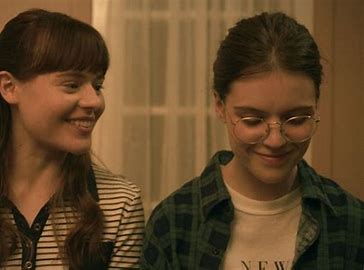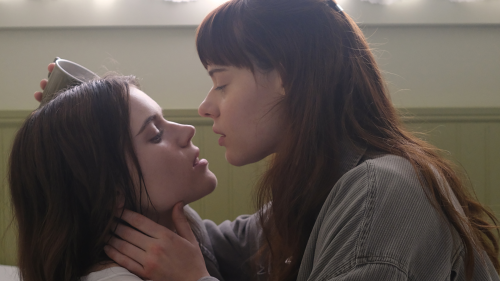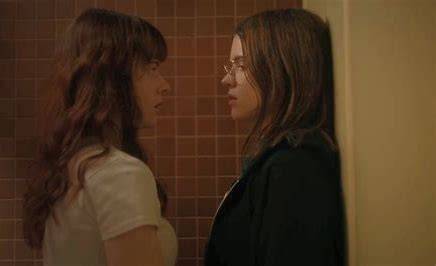Superb performances by two young actresses anchor “ You Can Live Forever,” a beautiful yet devastating film debut set in the 1990s by Canadian writer/directors Sarah Watts and Mark Slutsky. Anwen O’Driscoll is Jamie, comfortable in her queer sexuality, who is sent to live with her aunt Beth (Lian Balaban) and uncle Jean-Francois (Antoine Yared) in a small Jehovah’s Witness community in Quebec, Canada, after her father dies and her mother has a breakdown. June Laporte is Marike, also gay, but as the daughter of the congregation’s leader (Tim Campbell), she has to keep her sexual identity a profound secret, even from her older sister (Deragh Campbell).

There is an immediate attraction as the two girls lock their eyes at Jamie’s first congregation meeting. Despite her situation, Marike is the bolder of the two and immediately pursues Jamie with invitations to dinner at her family home, complete with (at first) innocent sleepovers and long walks through the stunning countryside and a seashore that extends to the horizon. They circle each other literally and figuratively until they finally kiss and then make out in sneaky places like the back seat of a car and a movie theatre restroom stall.

We know in our hearts that this cannot end well, not so much because of the objection of Marike’s community but because of Marike’s deep-seated faith. A faith that has become intertwined with her desires and sexuality. When she kisses Jamie for the first time, it is the concluding part of a prayer – the film’s title alludes to the JW’s eschatological beliefs – and when she “baptizes” Jamie in a make-believe bathtub ceremony, the act is infused with sensuality. There is no separating Marike’s beliefs from her feelings, and Laporte is tremendous in portraying this complex character who, with Jamie in her life, appears to have an escape route but doesn’t. It’s a heartbreaking performance.




























